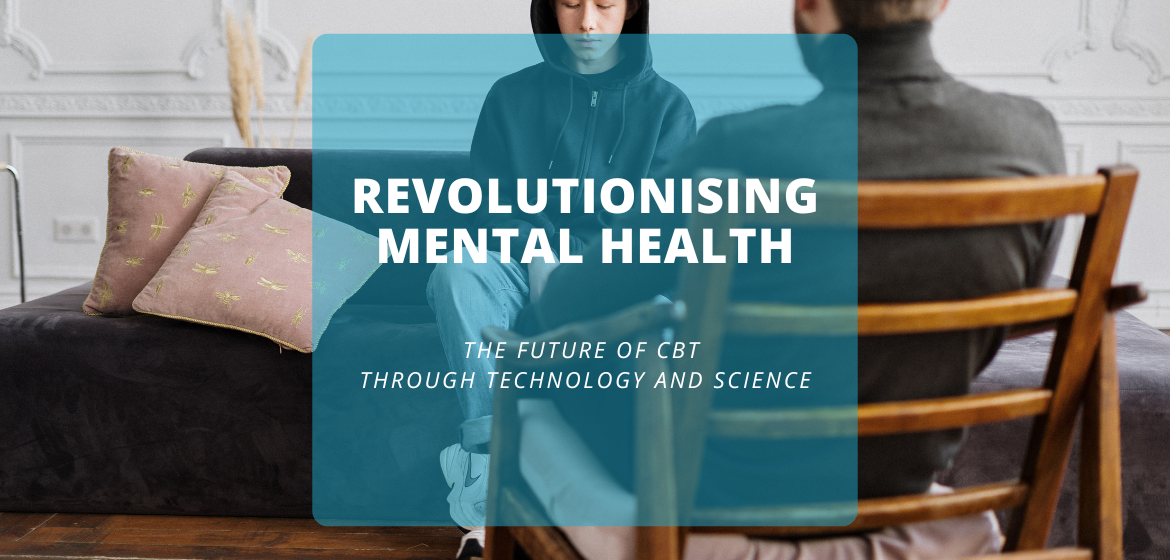
Revolutionising Mental Health: The Future of CBT Through Technology and Science
Cognitive Behavioural Therapy (CBT) has long been regarded as a gold standard in mental health treatment. Its structured, evidence-based approach to addressing psychological challenges like anxiety, depression, and PTSD has made it one of the most widely used therapeutic modalities. In recent years, advancements in technology, neuroscience, and cultural understanding have propelled CBT into a new era of innovation. This article explores these developments and considers the exciting possibilities for its future.
Expanding the Reach of CBT Through Technology
The integration of technology into CBT has opened new doors for accessibility and innovation. Digital CBT (dCBT), delivered through apps, online platforms, and even AI-powered chatbots, is transforming how therapy is accessed and experienced. These tools allow users to engage with CBT principles at their own pace, making therapy more accessible for those in remote areas or with limited time. Programs such as Woebot and MoodGYM have gained attention for their effectiveness, particularly for individuals with mild-to-moderate mental health conditions.
Virtual reality (VR) is also making significant strides in CBT, particularly for exposure therapy. By immersing individuals in simulated environments, VR offers a controlled way to confront fears, process trauma, and build resilience. For example, someone with a fear of heights can practice exposure exercises in a virtual skyscraper, while individuals with PTSD can process traumatic memories in carefully designed scenarios. These technologies are proving to be powerful tools in enhancing the efficacy of traditional CBT methods.
The Role of Artificial Intelligence and Machine Learning
Artificial intelligence (AI) is transforming how CBT is delivered and personalised. Machine learning algorithms analyze vast amounts of data to identify patterns, predict treatment outcomes, and refine therapeutic approaches. Chatbots like Woebot and Wysa provide real-time support, offering CBT-based guidance in moments of need. These tools are particularly valuable for individuals who might hesitate to seek face-to-face therapy or need supplemental support between sessions.
The ability of AI to personalise interventions is a game-changer. By tailoring therapy to the unique needs and experiences of an individual, these systems can enhance engagement and improve outcomes. However, questions around data privacy, ethical use, and maintaining the human connection in therapy remain critical considerations.
Insights from Neuroscience
Recent neuroscience research is deepening our understanding of how CBT works at a biological level. Brain imaging studies using functional MRI (fMRI) have shown how CBT influences areas of the brain involved in emotion regulation, decision-making, and memory. These insights are helping researchers identify biomarkers that predict how well an individual might respond to CBT, paving the way for more targeted interventions.
In addition to studying the effects of CBT on the brain, researchers are exploring neurofeedback as a complementary tool. By providing individuals with real-time feedback on their brain activity, neurofeedback can enhance the cognitive and emotional skills taught in CBT sessions.
Evolving Therapeutic Approaches
CBT is also expanding beyond its traditional boundaries through the incorporation of mindfulness and acceptance-based strategies. These “third-wave” approaches, such as Acceptance and Commitment Therapy (ACT) and Mindfulness-Based Cognitive Therapy (MBCT), emphasise values-driven action, emotional regulation, and acceptance of difficult experiences. Such approaches are proving especially effective for complex and chronic conditions, including borderline personality disorder, chronic pain, and addiction.
As CBT evolves, cultural adaptation is becoming increasingly important. Recognising that mental health is shaped by cultural context, researchers and practitioners are working to adapt CBT methods to align with diverse values, beliefs, and traditions. This ensures that the therapy remains relevant and effective across different populations.
Innovative Formats and Emerging Trends
One of the most exciting trends in CBT is the gamification of therapy. By incorporating game design elements such as rewards, challenges, and interactive storytelling, gamified CBT apps are making therapy more engaging, particularly for younger audiences. These tools provide a sense of accomplishment and motivation, which can enhance adherence to therapeutic exercises.
Augmented reality (AR) is another innovation on the horizon. Unlike virtual reality, which creates entirely simulated environments, AR overlays therapeutic elements onto the real world. This could allow individuals to practice coping skills in their everyday environments, bridging the gap between therapy and real-life application.
Collaboration with physical health interventions is gaining traction as well. Research increasingly highlights the interconnectedness of mental and physical health, and CBT programs are beginning to integrate elements such as exercise, nutrition, and sleep management to provide holistic care.
Balancing Progress with Ethical Considerations
While the future of CBT is bright, it is not without challenges. Ensuring that digital and AI-driven therapies maintain the human connection that is often critical for healing is a priority. Similarly, making these innovations accessible to all, regardless of socioeconomic status or technological literacy, is essential for equitable mental health care.
Privacy and data security are also significant concerns as more therapy moves online. Robust measures to protect sensitive patient information must be a cornerstone of any digital or AI-based CBT program. Additionally, as technology reshapes the therapeutic landscape, ongoing training for clinicians will be vital to ensure they can effectively integrate new tools into their practice.
Conclusion
Cognitive Behavioural Therapy stands at the forefront of mental health innovation, continuously adapting to meet the needs of an evolving world. Advances in technology, neuroscience, and cultural understanding are expanding its reach, enhancing its effectiveness, and personalising its approach. While challenges remain, the potential to transform lives through these innovations is immense.
As we look to the future, the focus will be on balancing technological progress with ethical considerations and preserving the therapeutic alliance that lies at the heart of CBT. In doing so, CBT will continue to be a beacon of hope and healing for generations to come.
If you’re interested in learning more we are currently enrolling for the M.A. in Counselling & Psychotherapy (Cognitive Behavioural Modalities) which helps to expand on the knowledge and understanding of the human condition and the contribution of advanced-level counselling and psychotherapy practices incorporating CBT approaches.






















